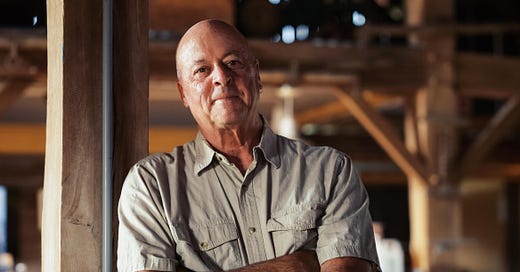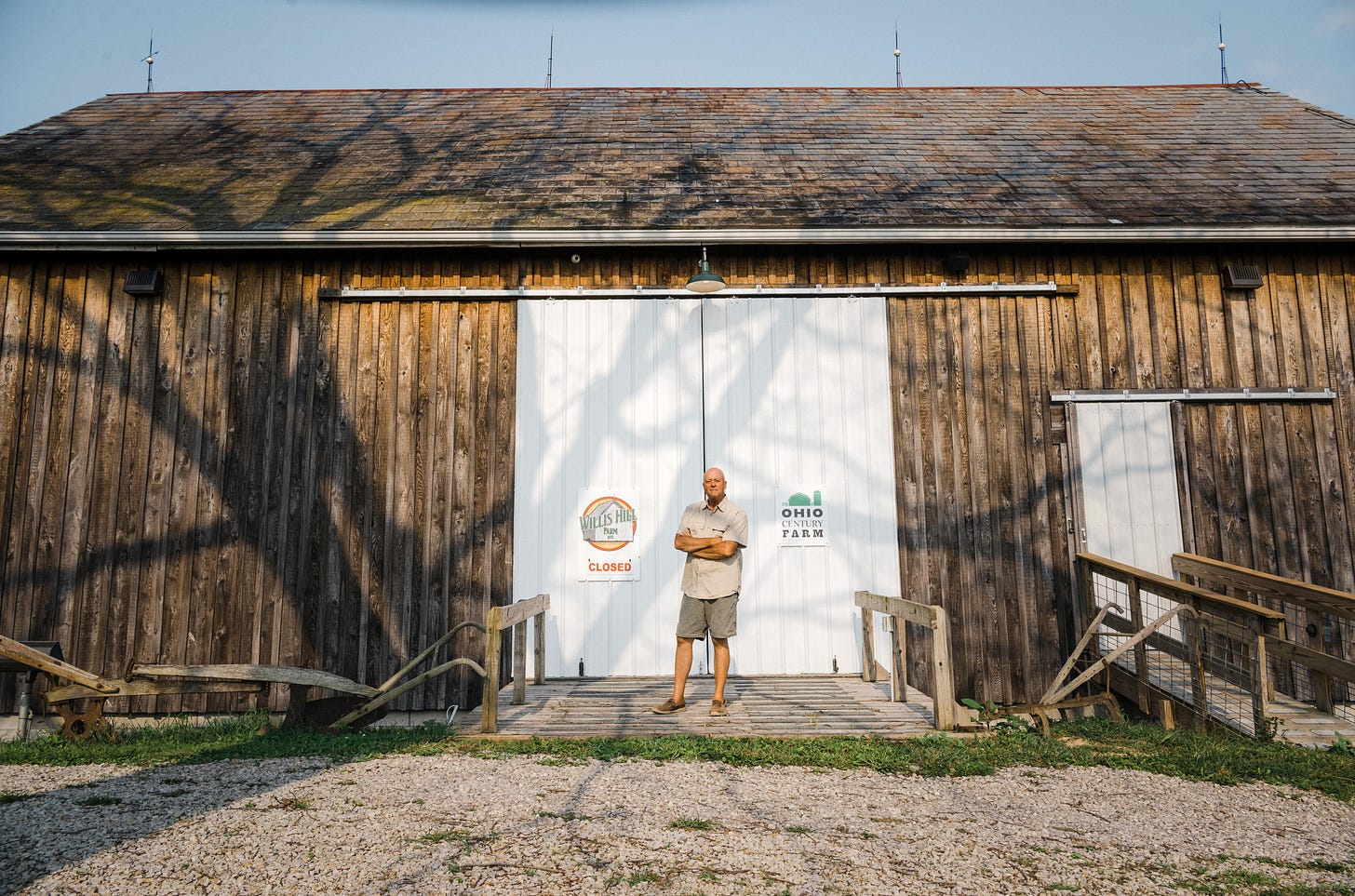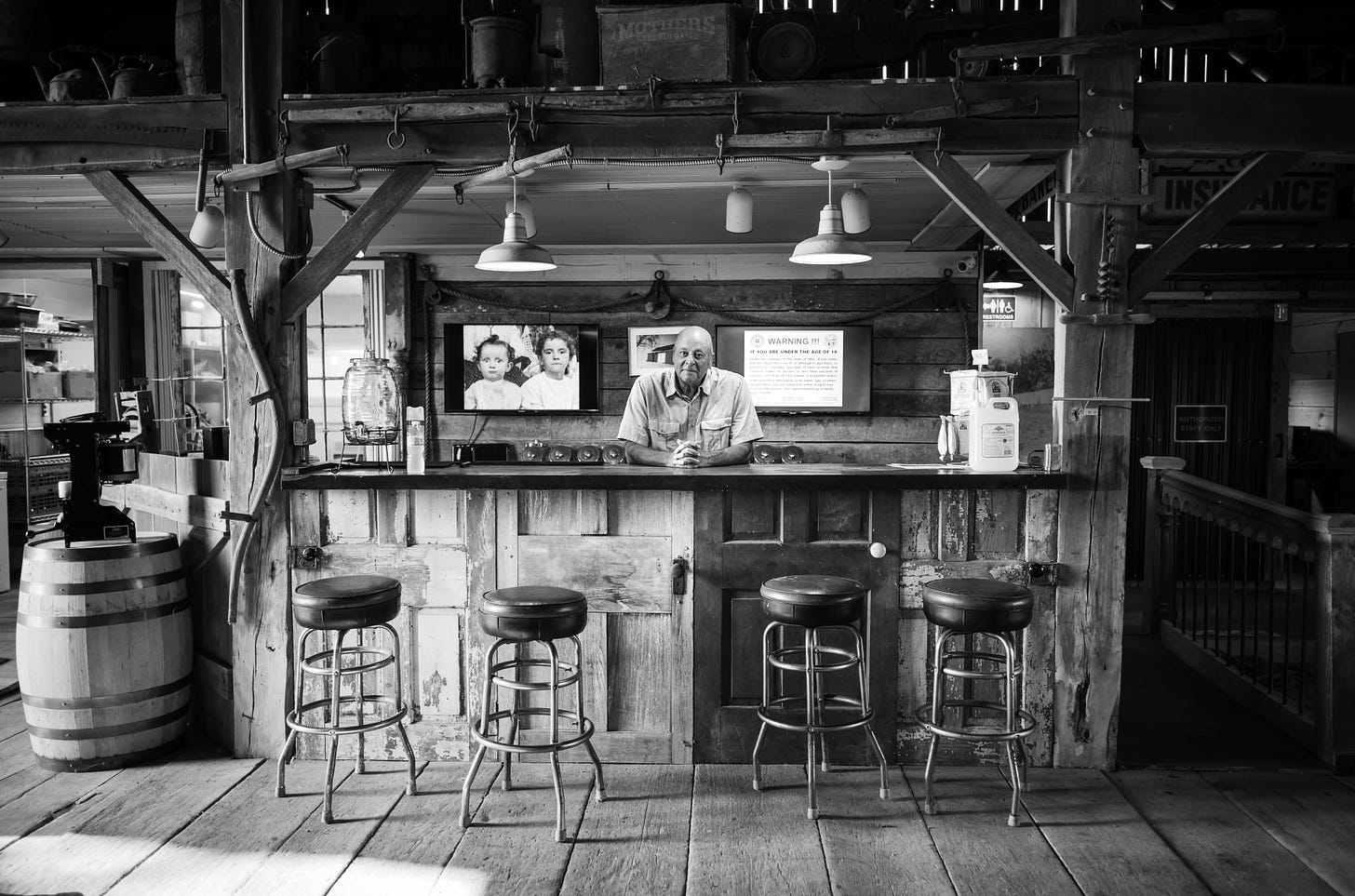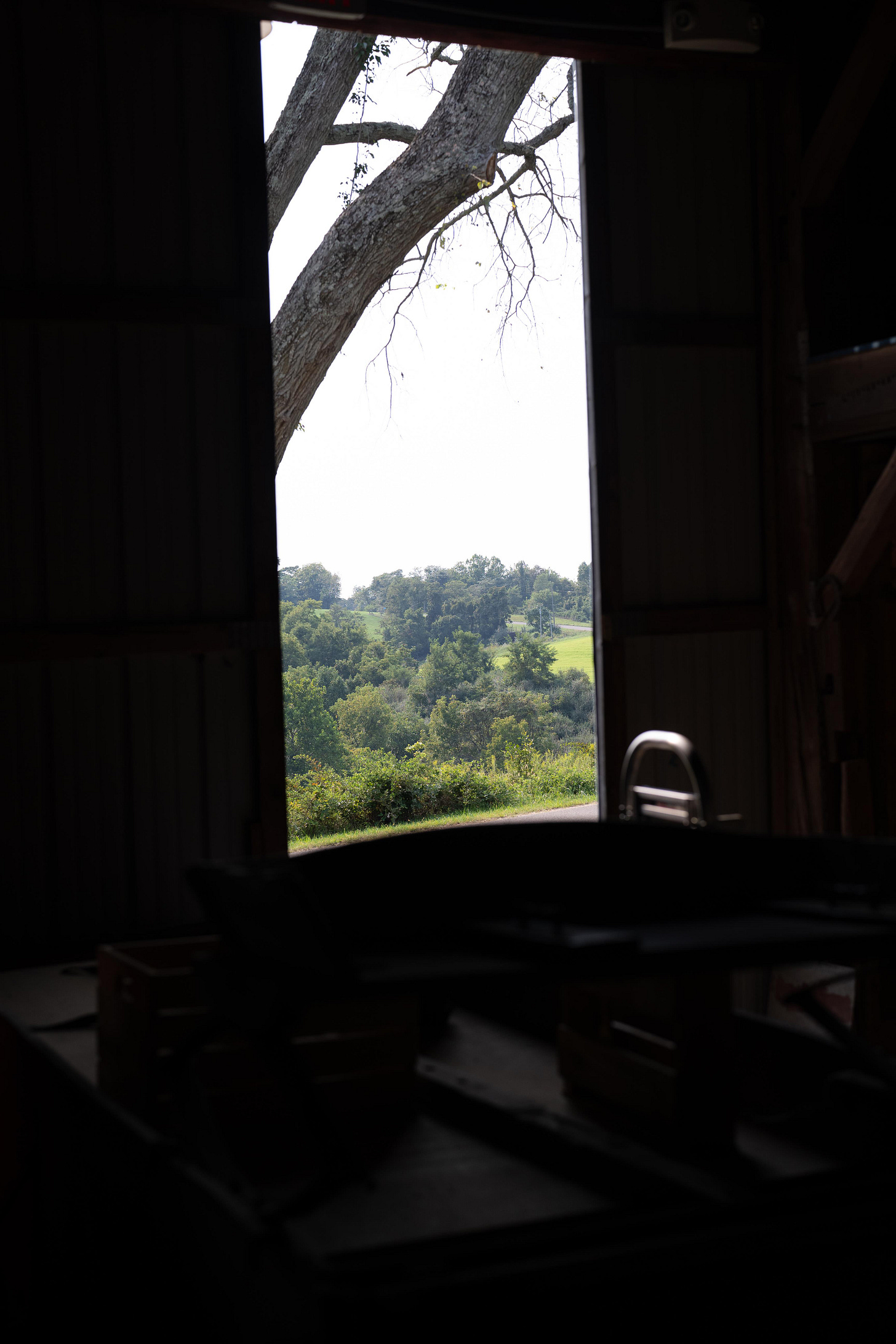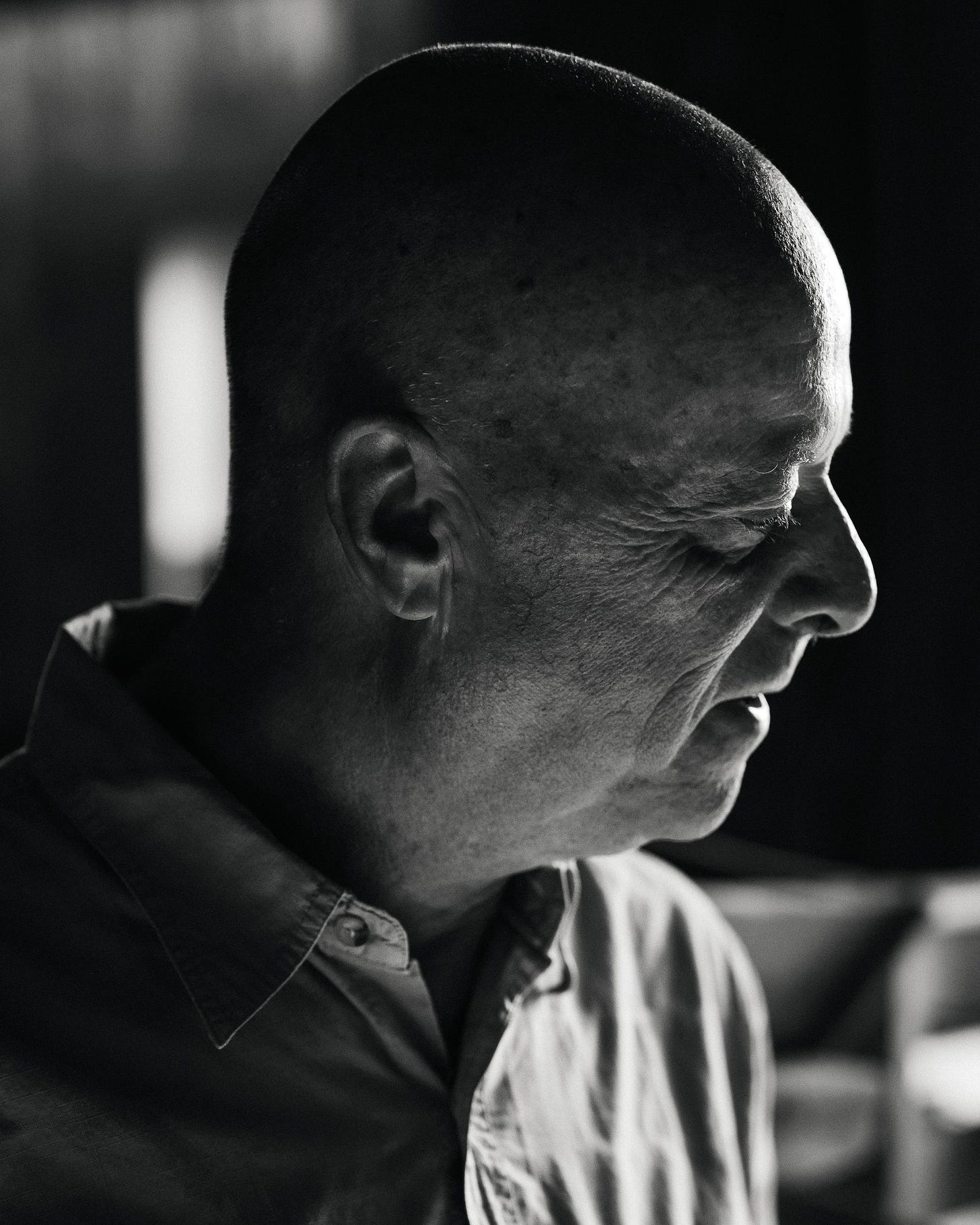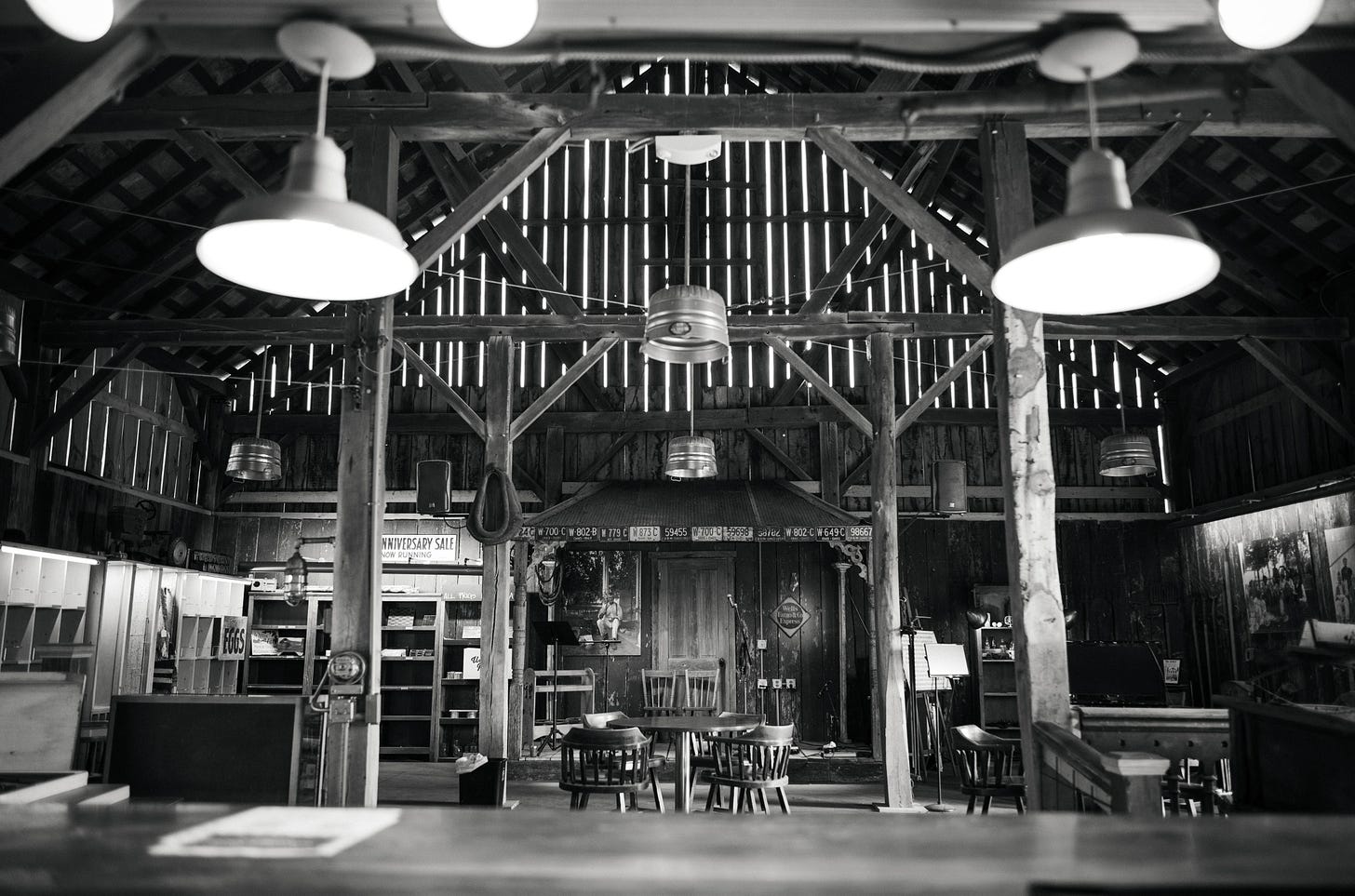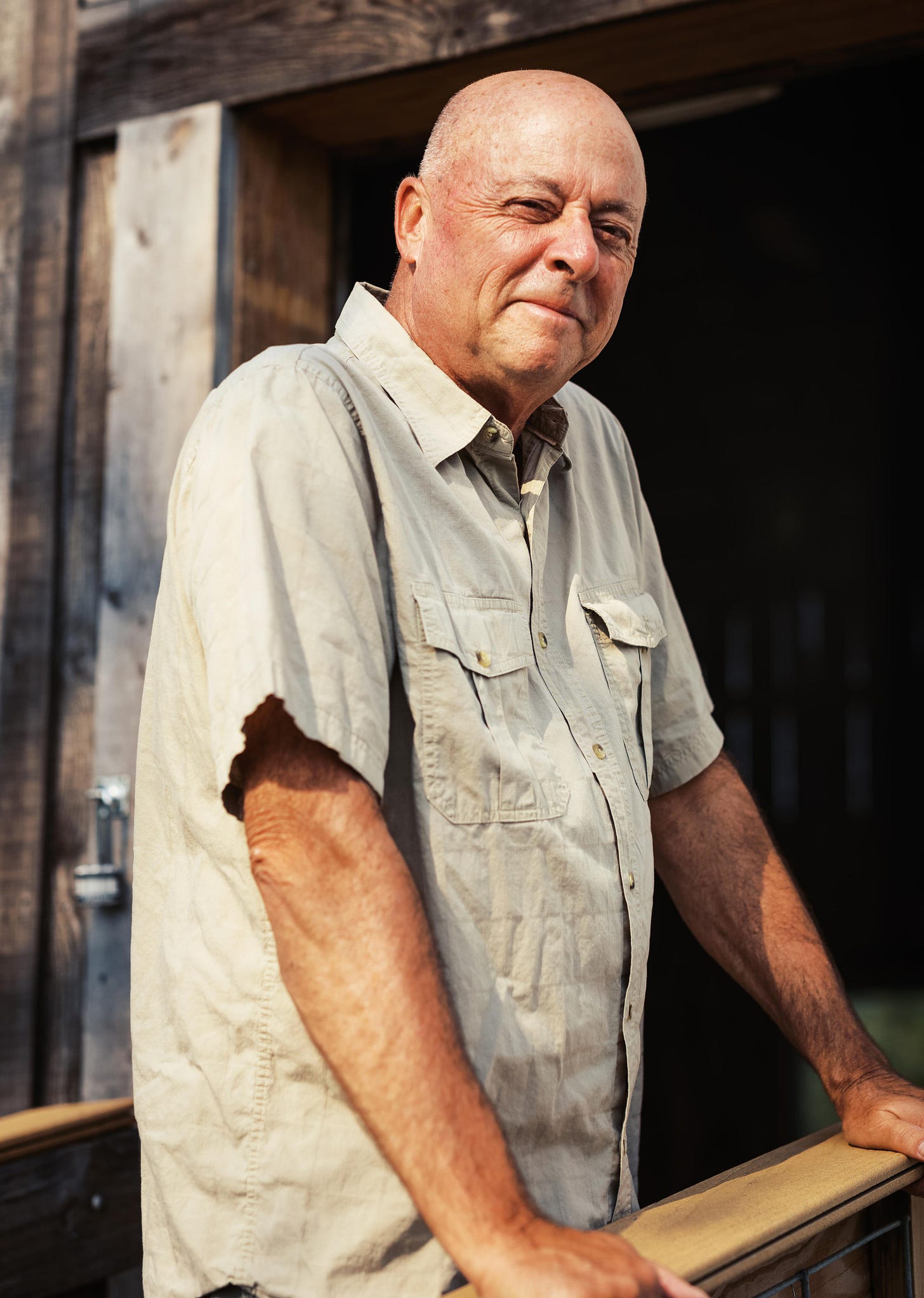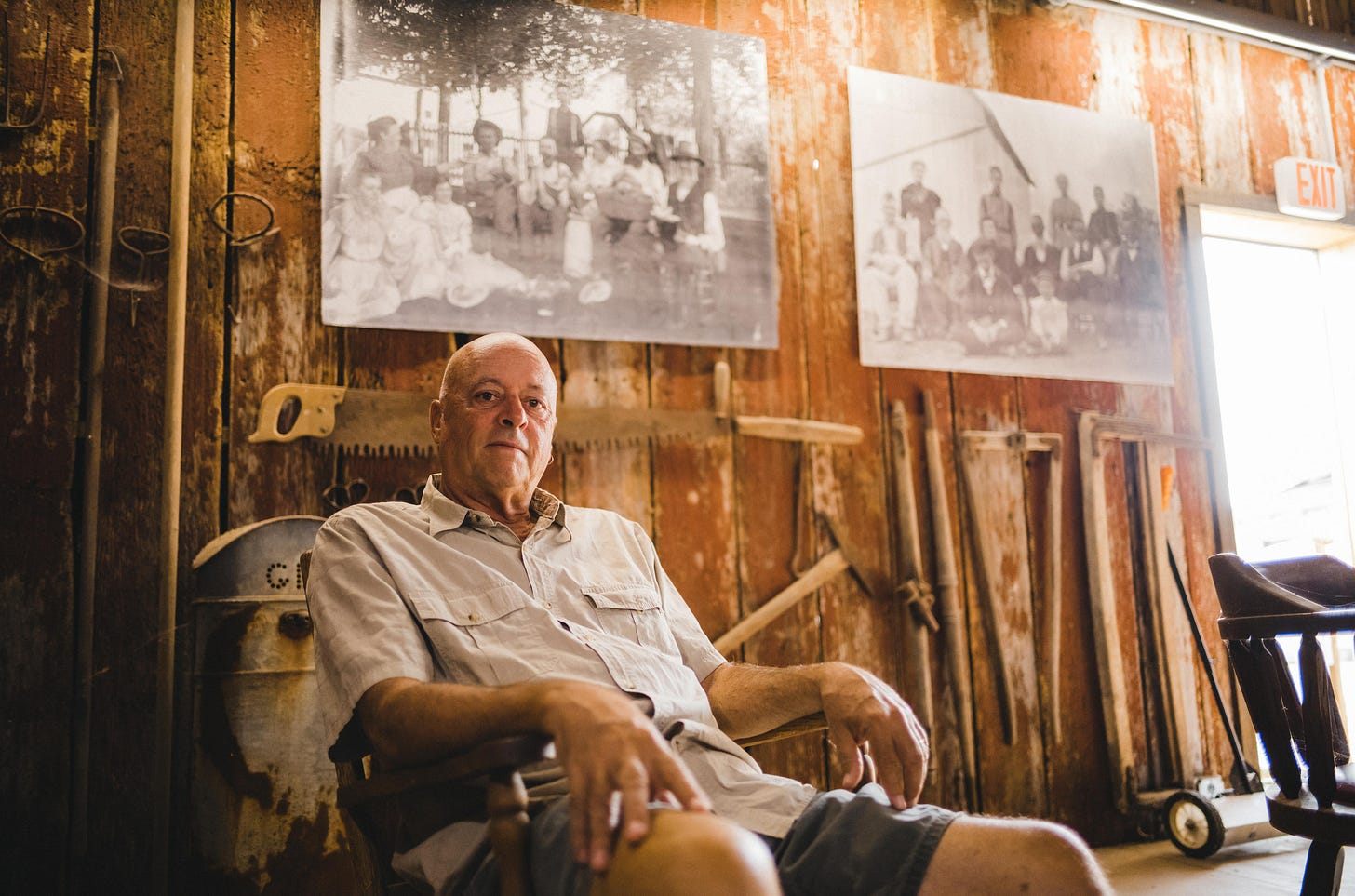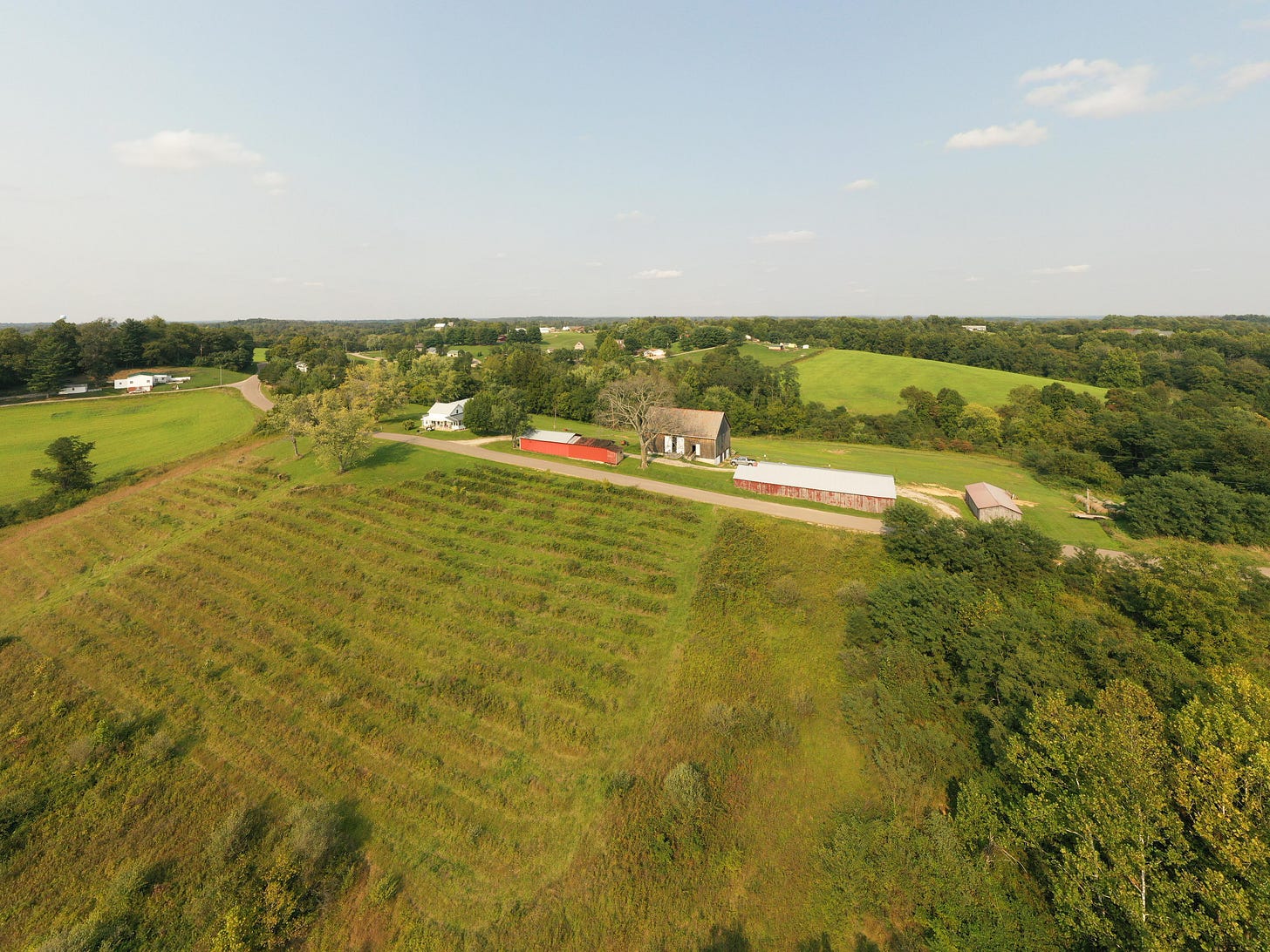Rick Shriver and Willis Hill Farms
“I'm building a winery on my family’s farm in Appalachia, converting a barn that my great-great-grandfather built in 1890. I'm the fifth generation to live on this farm of 135 acres. My great-great-grandfather was a distiller, making brandy. I still have his copper pot stills and documents, so I guess it was kind of natural that I would get into something like this. I have all of his recipes, and I use his recipes for the fruit wines that I make like peach, blackberry, and raspberry.
It’s been a long process. Whenever I had a little bit of extra money, I would go buy a load of lumber, or a bunch of conduit or whatever I needed. I was raised by my granddad, who was born in 1898, which means I'm frugal. My family never threw anything away. If my grandad was tearing something apart, he would pull the nails out and straighten them and put them in a coffee can and save them for later.
That means this farm is filled with stuff that’s been in the family for a very long time. I had a visitor here from West Africa, and he compared it to a museum. I like to think of it as living history.
The first couple years of work that I did were about stabilizing the structure so it didn't degrade any more than it already had. That meant a new foundation, new electrical and all that stuff. Inside, I haven't changed any of the structure, so it still has the original timbers that were harvested on this farm...but I also needed to make it safe for my 92-year-old neighbor to come in when she wants to buy a bottle of wine.
The buzz terms these days are 'microbrewing' and 'microbrewery'. We're more like a 'nanowinery'. The federal government allowed me to put on the label ‘100% natural’ because my wine has nothing in it except for fruit, spring water, sugar, ungranulated cane sugar, with a bit of wine yeast to kick start it. It doesn't have any preservatives. Why do you need a preservative in wine? If you do, you’re not drinking it fast enough!
That being said, I don't drink much at all, and I've been making wine for so long that our basement at home is just full of it. Every now and then I'll get an old bottle out from years ago and crack it open just to see how it holds up.
I used to teach at Ohio University, and while I was there, I spent a year in Southeast Asia on a Fulbright scholarship to build a recording studio. There are teaching awards, research awards and combination awards, so I applied for the combination award because I wanted to both teach and do research. You select the country that you want to go to and find a project that matches your abilities and interest, and I went to a university near Kuala Lumpur to build a recording studio on campus while researching and recording indigenous music.
In Bali, I found a guy who makes all the instruments that are used in gamelan music. He learned from his father who learned from his father who learned from his father, and knowing nothing other than the guy's name, I found him. He was a wonderful, gracious man. He invited me into his home, let me spend a couple of days documenting how he makes the instruments, and I recorded individual notes from all of his instruments and compiled those into sound fonts. They're posted on my website, and I've had people from literally all over the world use them in things like animated films and house and trance music and other things I don’t understand.
That year in Southeast Asia was a life-changing experience. Everyone I met was very open and friendly. Malaysia is a Muslim country. It's also a very multicultural country. I think I've always been a tolerant person, but I think that experience taught me what that actually meant.
I just learned so much, it was such a culture shock. We think we are the center of the universe, and we think we’re really smart, and we’re not. I taught undergrad and graduate classes—and all of my students were multilingual. That was humbling and surprising and left me dumbstruck.
Experiencing their culture helped me embrace my own.
I live in a ‘hillbilly world’. It took me a long time to be OK with that, because I understand now I'm a ‘hillbilly’: it’s MY culture. When you're a young man, you don't want to think that. You want to be something different than what you are, a ‘sophisticated hippie’ or whatever. But now, I get it.
Although there are aspects of Appalachian culture that I'm not proud of, so much of it is pretty cool when you drill down into it.
It’s an interesting culture, here in Appalachia, that a lot of people, myself included, even though I was born into it, probably don’t really understand.
But then you learn about our values and what drives us, and you understand.
I was a Morgan County commissioner for four years, a self-proclaimed one-termer. I didn't want more than one turn. There were some things I was really committed to that I wanted to accomplish, the first being for the government to be more transparent locally. I also wanted to build up the local retail and small manufacturing base.
This was a coal mine community for decades. The commissioners at the time sold their souls to the devil to get the coal mine to come here, made a deal that this property is going to be worth $600 an acre for perpetuity because we can give up tax revenue in exchange for jobs. So what happens? Strip mining’s not good anymore, it’s high-sulfur coal. We lost the one place that burned that miserable stuff, so they closed the coal mine. Thousands of people out of work. We've done that over and over, you know? We put all of our eggs into a big factory basket.
What I keep telling the people that are in charge of economic development now is you’ve gotta quit chasing big factories. Let's build our future on something else, maybe small businesses or high tech.
And this should be a retirement destination. I live in Mayberry. Honest to God, my generation grew up with that vision of America, and I live there, and I think we can give that experience to people.
That was why I ran for county commissioner. I wanted to focus on communication, commerce and cleanup. And most people here in the county remember me from when I was a long-haired hippie freak: I literally had hair to my waist and my job was to protest the Vietnam War.
And I got elected.
I really had a great four years. We accomplished so many things. We established a federally qualified health center here, which means people can get medical care, mental health care, dental care, podiatry, pediatrics, all under one roof, all based on a sliding fee scale. If you don't have any money, you get free health care. We did it. We established a rural transit system that is thriving today. We established a learning center. I’m super proud of that.
People here call me a historian, and they mean it in a complimentary way, but I am not a historian. I think of myself as a documentarian. I am very passionate about and involved with oral history because I believe that we are now in a post-literate society. I don't think people want to read and I don't think they do. If it's a meme, if you can reduce it to 10 or 12 words and post it on social media, then they'll read it.
I started interviewing people who were in their 80s and 90s. We would talk about what it was like growing up at the turn of the century on a farm in Morgan County, going to the county fair, going to the movies on the weekends, going to school, what life was like back then. I haven't done anything with it yet, but I keep it because that's the way you get people to understand history.
Today, you have to do history through video because they're not going to sit down and read a book. You could write a very well-researched book and it would just sit on the shelf, but if you could make it into a compelling 12-minute video, somebody might watch it.
This part of the state, this part of the country, is invisible to a lot of people. So to show rich history here, along with the interviews, I am the unofficial curator of a huge collection of images of this area. I'm not trying to make money on it. I just want to share it.
People say to me all the time, ‘You should put this in a book. This is fascinating history.’
And it would make a great book.”
– Rick Shriver, Willis Hill Farm, LLC, McConnelsville, Ohio
Story for OhioSE
You can also connect with me on LinkedIn, Facebook, and Instagram.


